I agree that this is a difficult question that could have multiple answers, so I prefer to make an different example:
Let's suppose to have an JavaScript Array, populated by a generator:
var arr = [...new Array(10).keys()];
that is
[0, 1, 2, 3, 4, 5, 6, 7, 8, 9]
Now we want to map this to a new array - same length, applying some function, so we could use the native map function property:
arr = arr.map((value,index) => ++value)
We have just done a value=value+1 and return, so now the array will look like
[1, 2, 3, 4, 5, 6, 7, 8, 9, 10]
Ok, now supposed to have a JavaScript Object like
var obj=new Object()
that was defined like the previous array (for some crazy reason):
arr.forEach((value,index) => obj[value]=value)
i.e.
{0: 0, 1: 1, 2: 2, 3: 3, 4: 4, 5: 5, 6: 6, 7: 7, 8: 8, 9: 9}
At this point we cannot apply the same map method since it's not defined for an Object so we have to define it as a new prototype of an Object:
Object.defineProperty(Object.prototype, 'mapObject', {
value: function(f, ctx) {
ctx = ctx || this;
var self = this, result = {};
Object.keys(self).forEach(function(k) {
result[k] = f.call(ctx, self[k], k, self);
});
return result;
}
});
At this point we could do as for the array before:
obj=obj.mapObject((value,key) => ++value )
so that we have:
{0: 1, 1: 2, 2: 3, 3: 4, 4: 5, 5: 6, 6: 7, 7: 8, 8: 9, 9: 10}
You can see that we have updated the values only:
[...Object.keys(obj)]
["0", "1", "2", "3", "4", "5", "6", "7", "8", "9"]
and we can turn back then into the output array:
[...Object.keys(obj).map(k=>obj[k])]
[1, 2, 3, 4, 5, 6, 7, 8, 9, 10]
Here it is at work:
// Array.map
var arr = [...new Array(10).keys()];
console.log("array", arr)
arr = arr.map((value, index) => ++value)
console.log("mapped array", arr)
// new property
Object.defineProperty(Object.prototype, 'mapObject', {
value: function(f, ctx) {
ctx = ctx || this;
var self = this,
result = {};
Object.keys(self).forEach(function(k) {
result[k] = f.call(ctx, self[k], k, self);
});
return result;
}
});
// Object.mapObject
var obj = new Object()
arr = [...new Array(10).keys()];
arr.forEach((value, index) => obj[value] = value)
console.log("object", obj)
obj = obj.mapObject((value, key) => ++value)
console.log("mapped object", obj)
console.log("object keys", [...Object.keys(obj)])
console.log("object values", [...Object.keys(obj).map(k => obj[k])])
